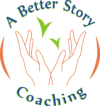Time (noun)
A nonspatial continuum that is measured in terms of events which succeed one another from past through present to future.
To make sense of our existence, we perceive time as a series of moments happening in a forward-moving sequential mode. Doctor Albert Einstein argued that “the distinction between the past, the present, and the future is only a stubbornly persistent illusion.” Nevertheless, because most of us are not brilliant physicists, we conceptualize our lives in the context of memories, the moment we are living in, and thoughts of how we believe things are going to develop. Stories of the past and imaginary futures are good survival tools. They help us learn from experience and create plans for what we want to do. These ideas, for good or for ill, also influence our consciousness. Some of our most common civilization’s mental ailments — like anxiety, post-traumatic stress, or obsessive compulsiveness — are partly associated with truths that only live in our heads. When the stories we tell ourselves about the past and the future block our capacity to feel joy in the present, they become something that we must pay attention to.
The effects past experiences have on our psyche are too complex to address in a short article, and frankly, a theme better left to mental health professionals. On the flip side, the present is where we can hold onto our power by creating habits that will help us pursue the future as we want it. One essential tool is effective time optimization, which is different from what many might think. Hint: it is not about more; it is about less.
The history of time measurement goes back to five thousand years. Different civilizations sought to calculate months and days to organize planting, harvesting, and community activities. The results were calendars based on constellations, lunar cycles, and seasons, which formalized a “planning for the future” way of doing things. Today, it is not unusual to rush through the present while over-focusing on the future. The busiest we are, the more productive we seem to be, which should logically put us closer to our goals. Without noticing, we fall into a cycle where we are constantly living today to build something for tomorrow.
Furthermore, it is almost impossible to be part of modern society without feeling like we need to keep up. Schedules and calendar invitations seem to take control of our lives, and we give up, thinking that we can do nothing. More people are realizing each day that this is not the way they want to live.
In coaching, we embrace ideas such as “follow your dreams” and “live in the moment.” Although they might sound incompatible, they are both crucial beliefs to hold. If we are always living for tomorrow, we miss today’s experiences and fail to connect with the world around us. If we are always living in the moment, we will likely have little say on how things will turn out. Finding harmony is the obvious choice; but is that easy to accomplish? Maybe it is, if you look for clarity and establish some habits to help you find the right balance for you. Here are a few things you can start doing today to practice living in the moment while following your dreams.
Planning for the future allows us not only to reach our personal dreams but also to create together. This makes us unique in the animal kingdom. Certainly, many other living organisms are capable of organizing themselves. Still, as far as we know, no other reaches humans’ abilities for planning. This same advantage has accelerated the way we function and created a system in which many of our actions today are simply a conduit to the idea of our future lives. To make the most of your experiences, work hard at balancing your plans for tomorrow with actually living today.
For more information, you can contact Ivonne at info@abetterstorycoaching.com
